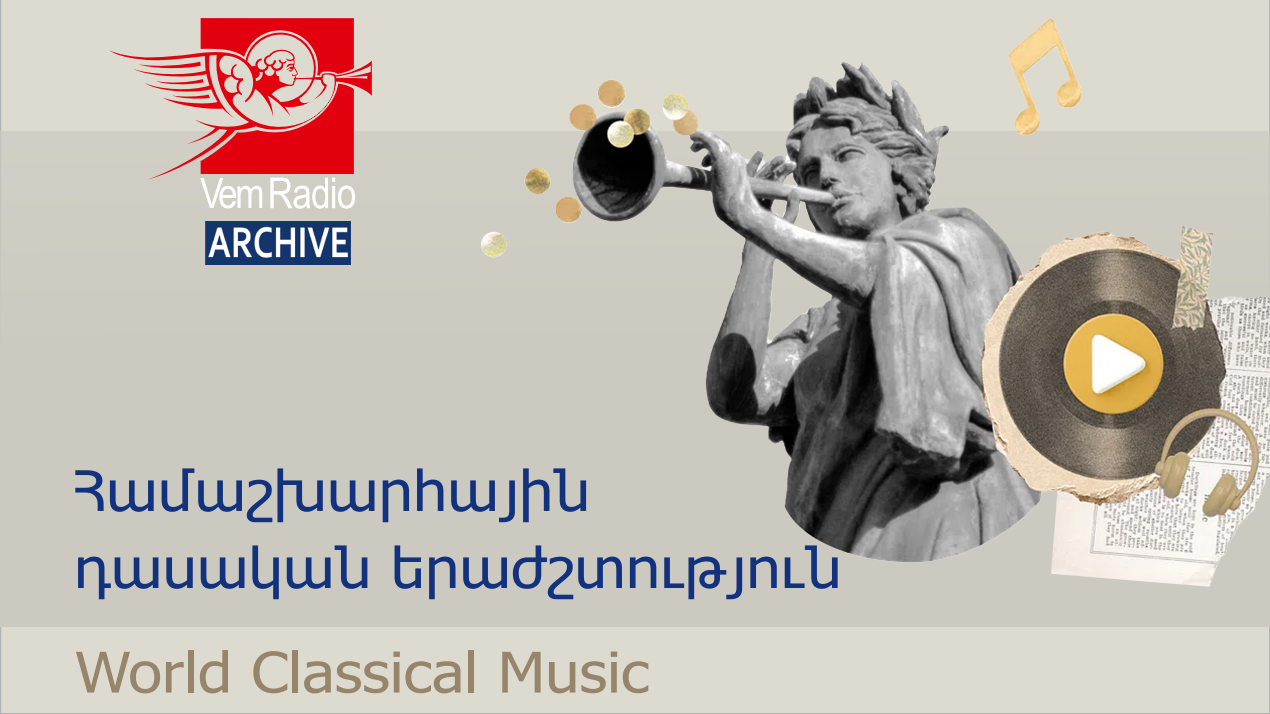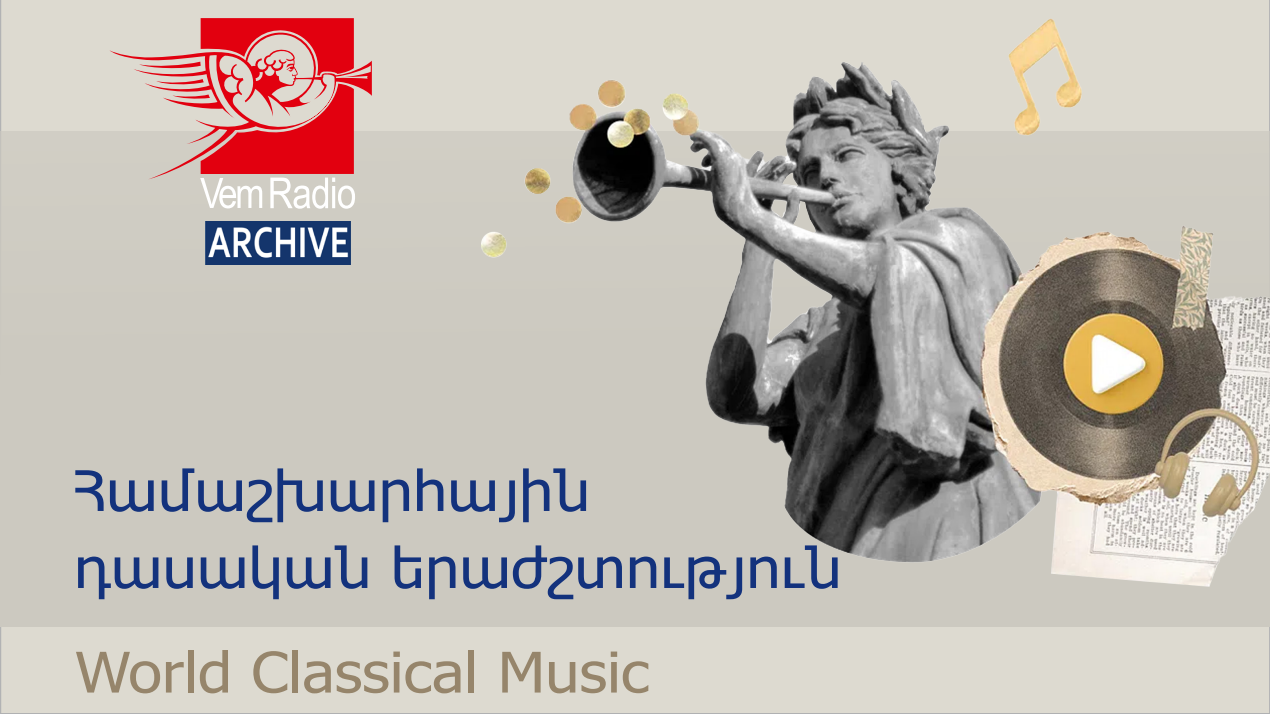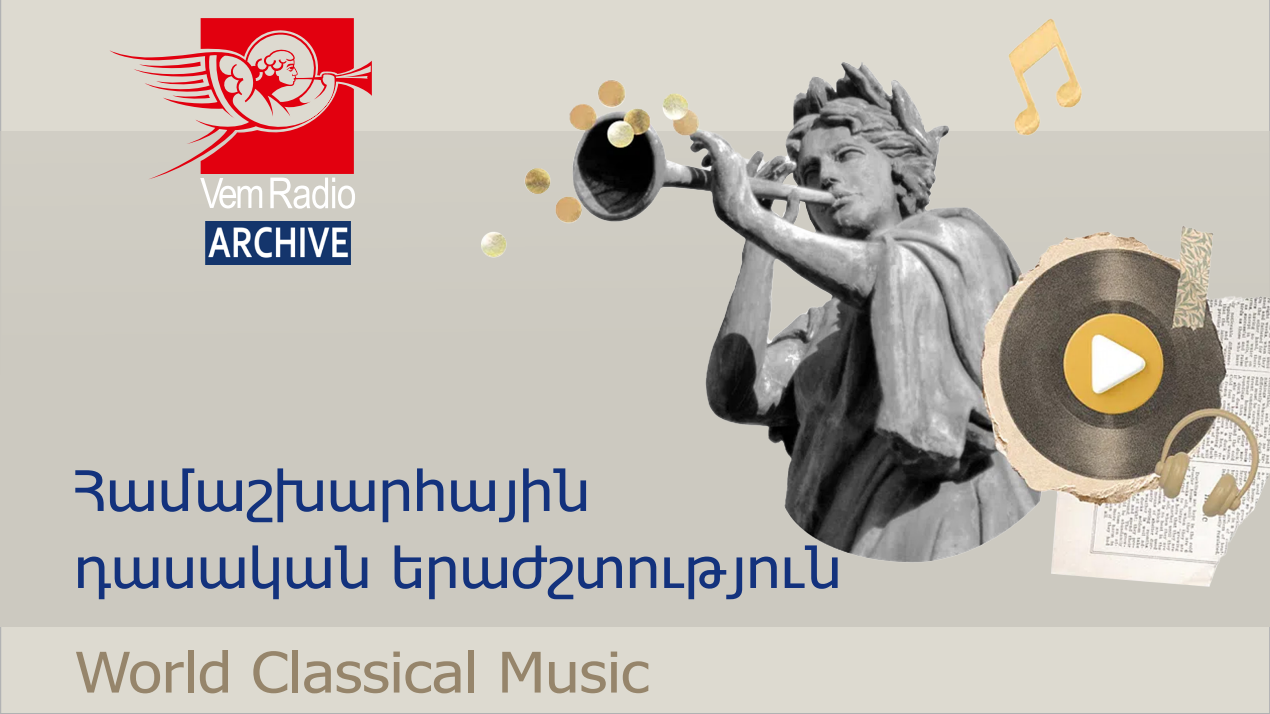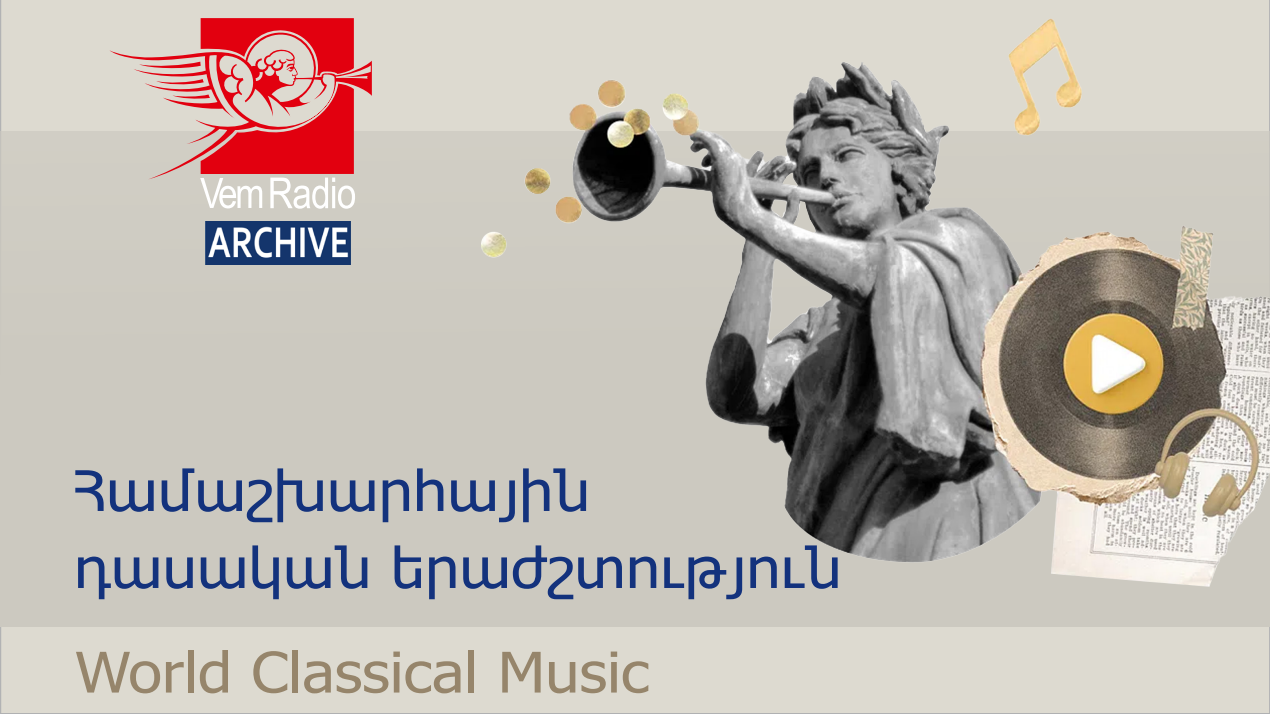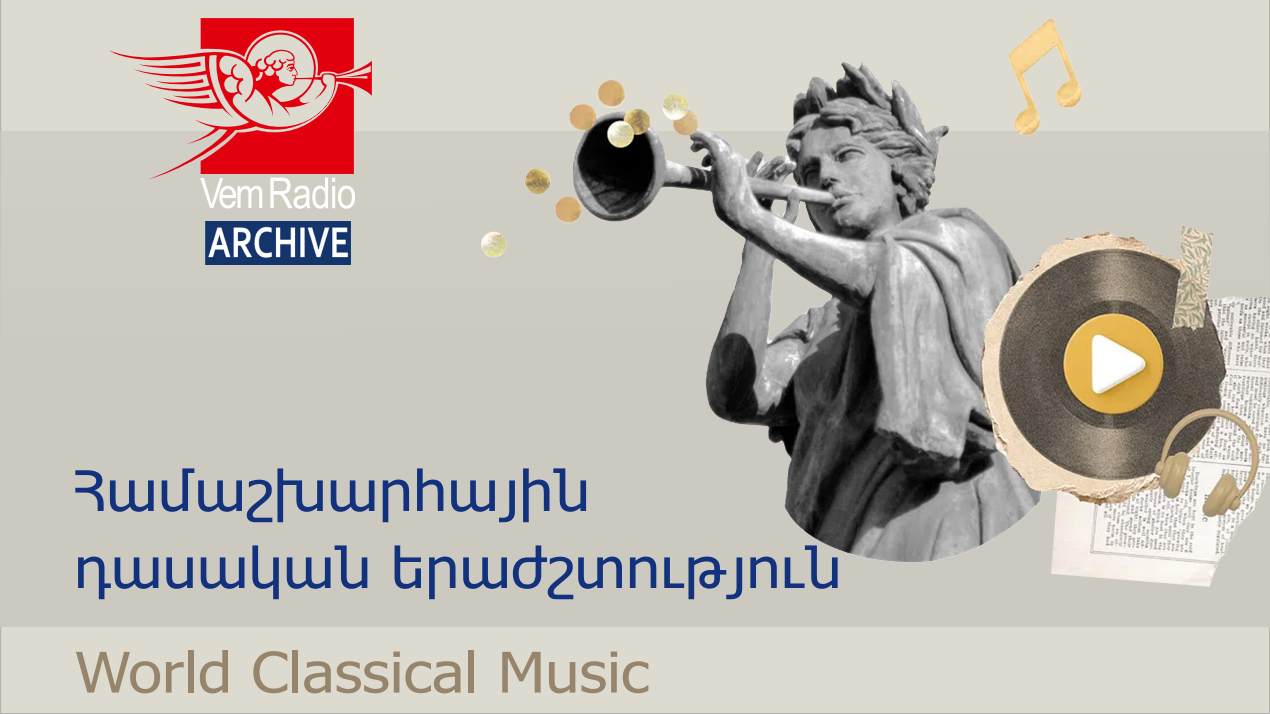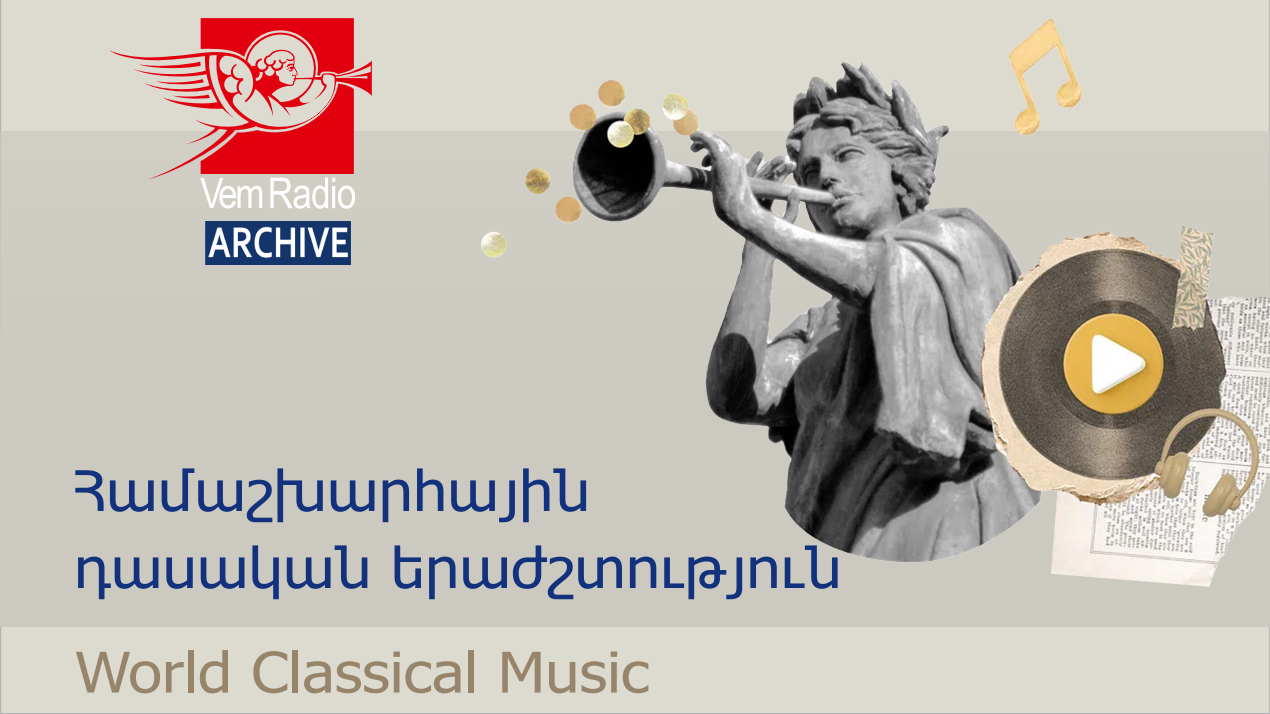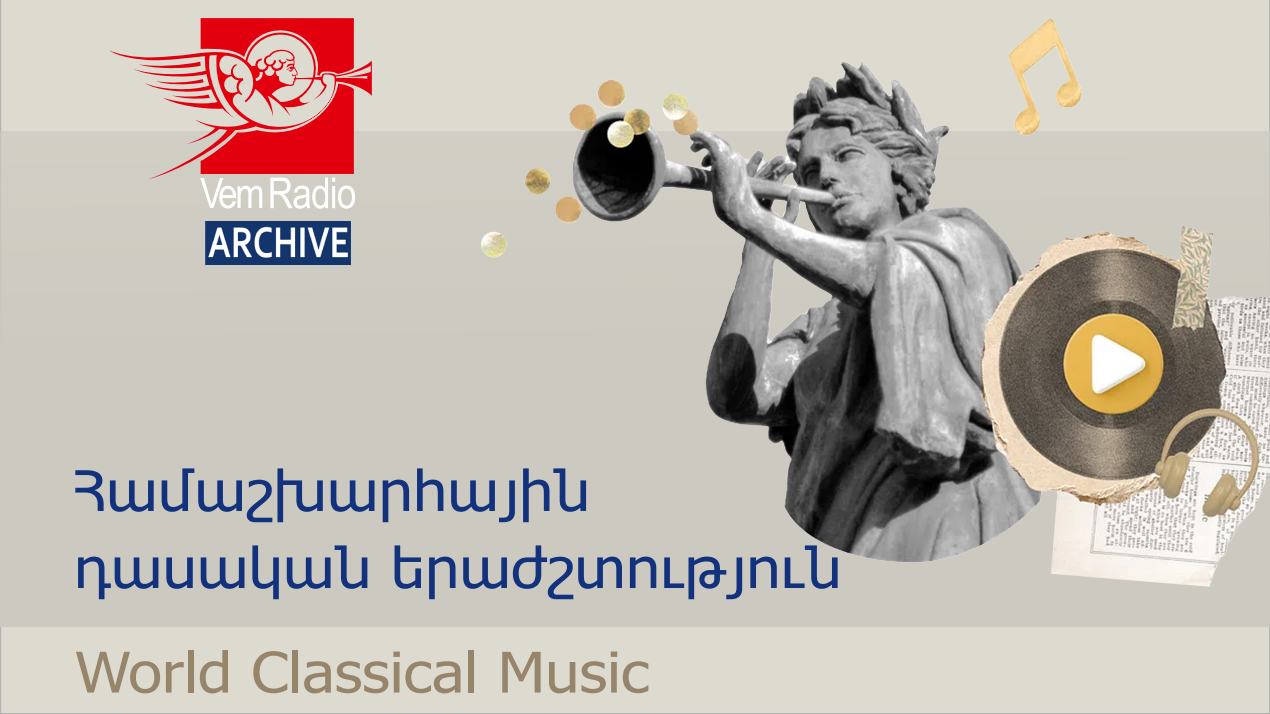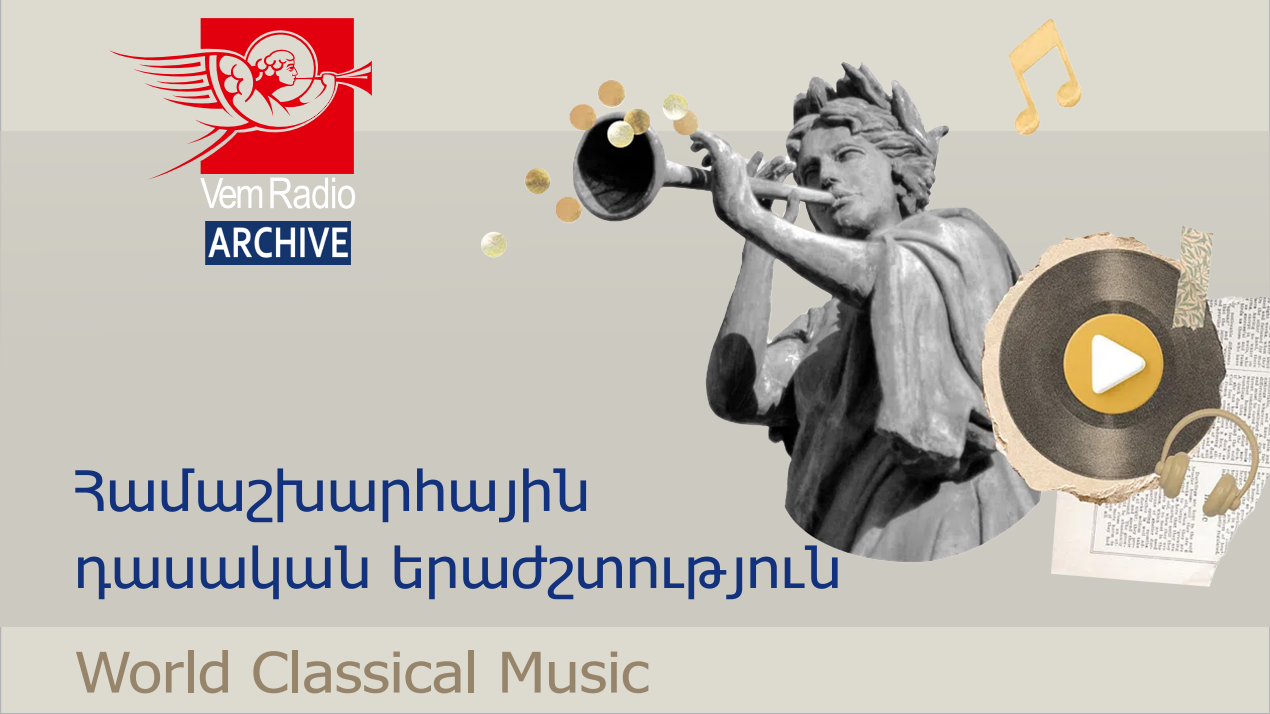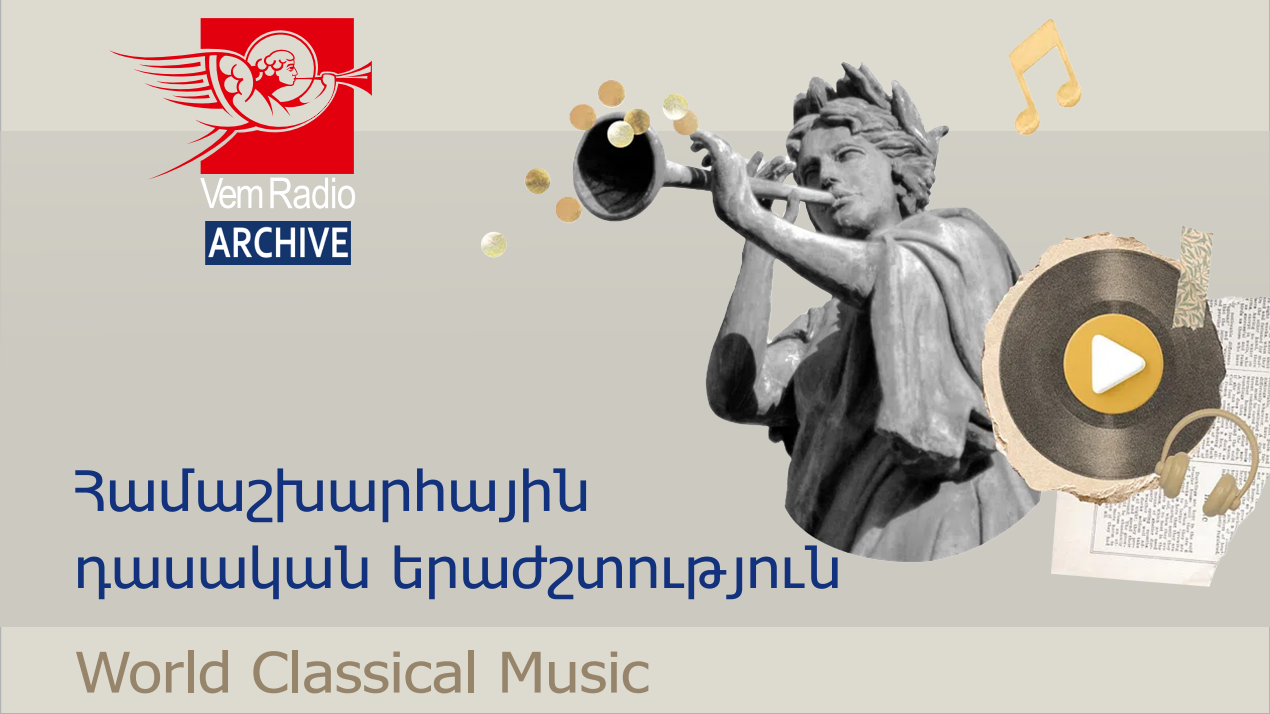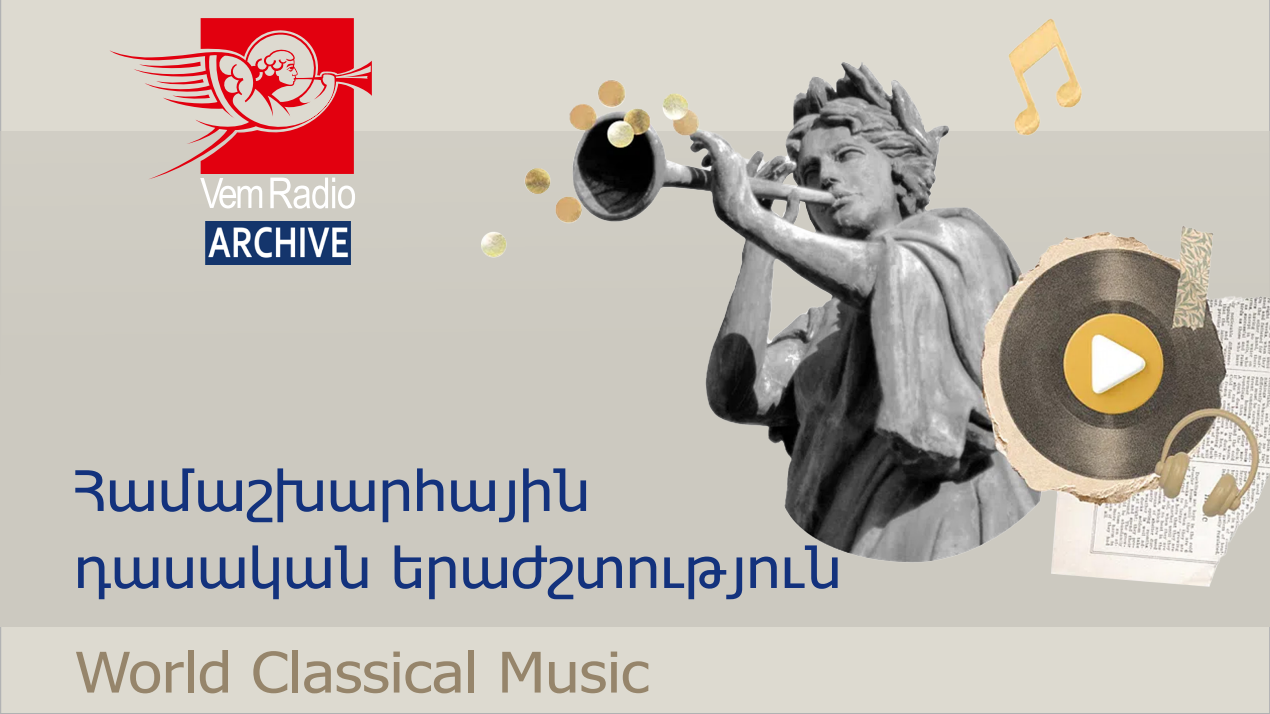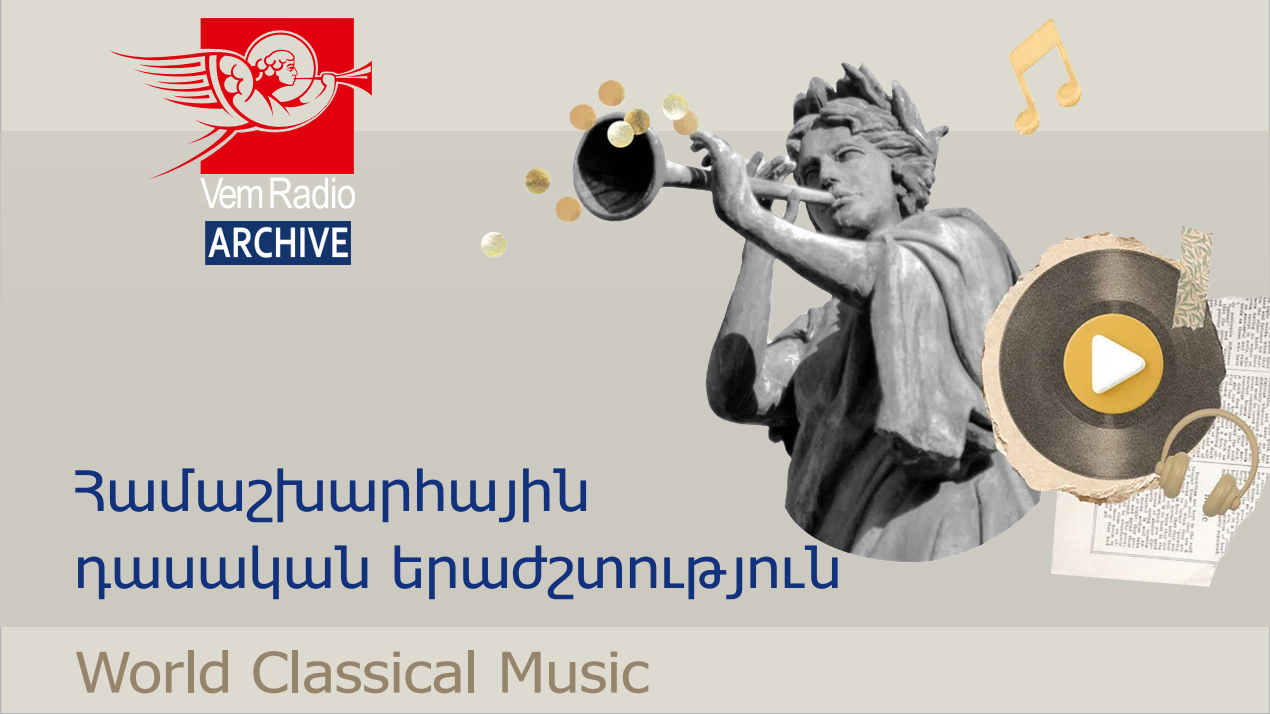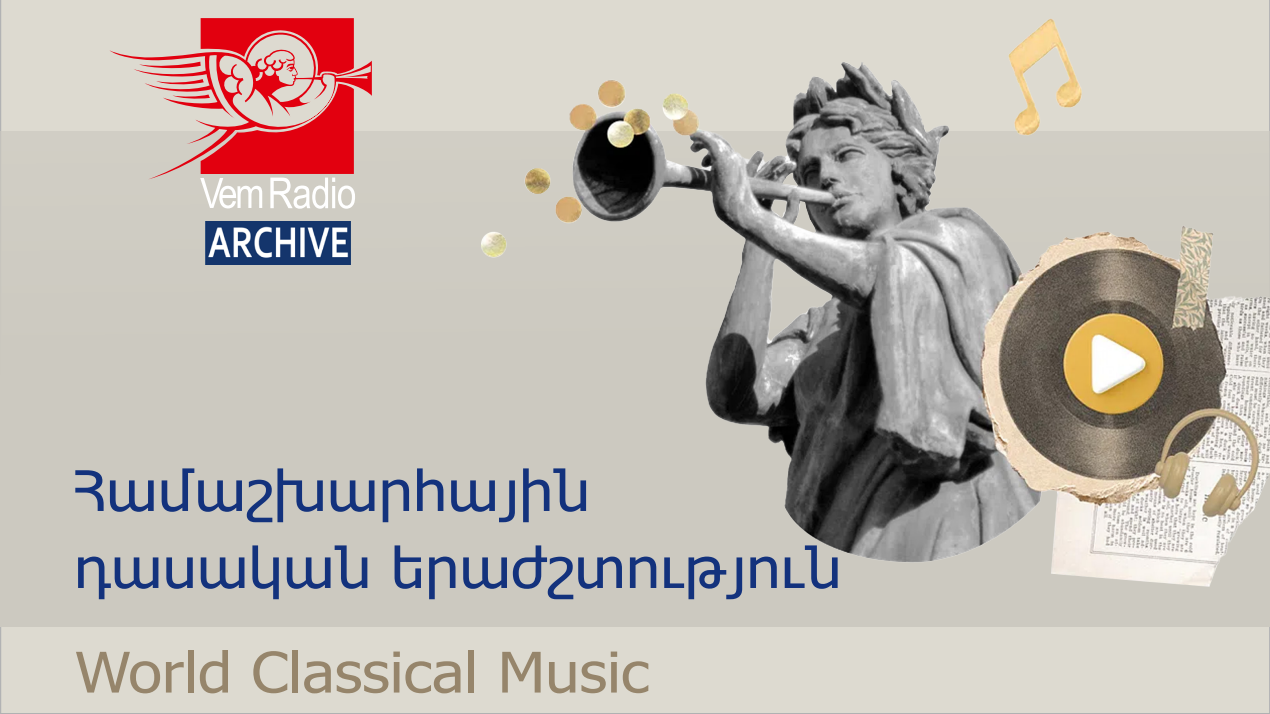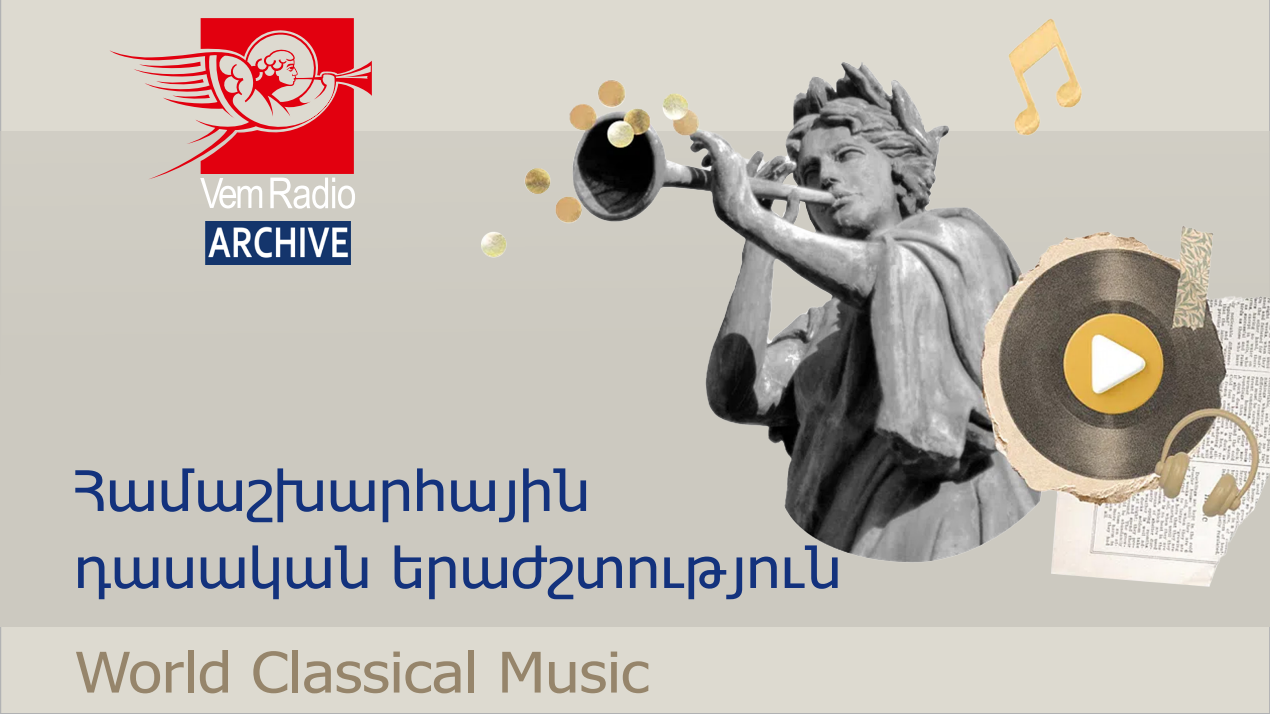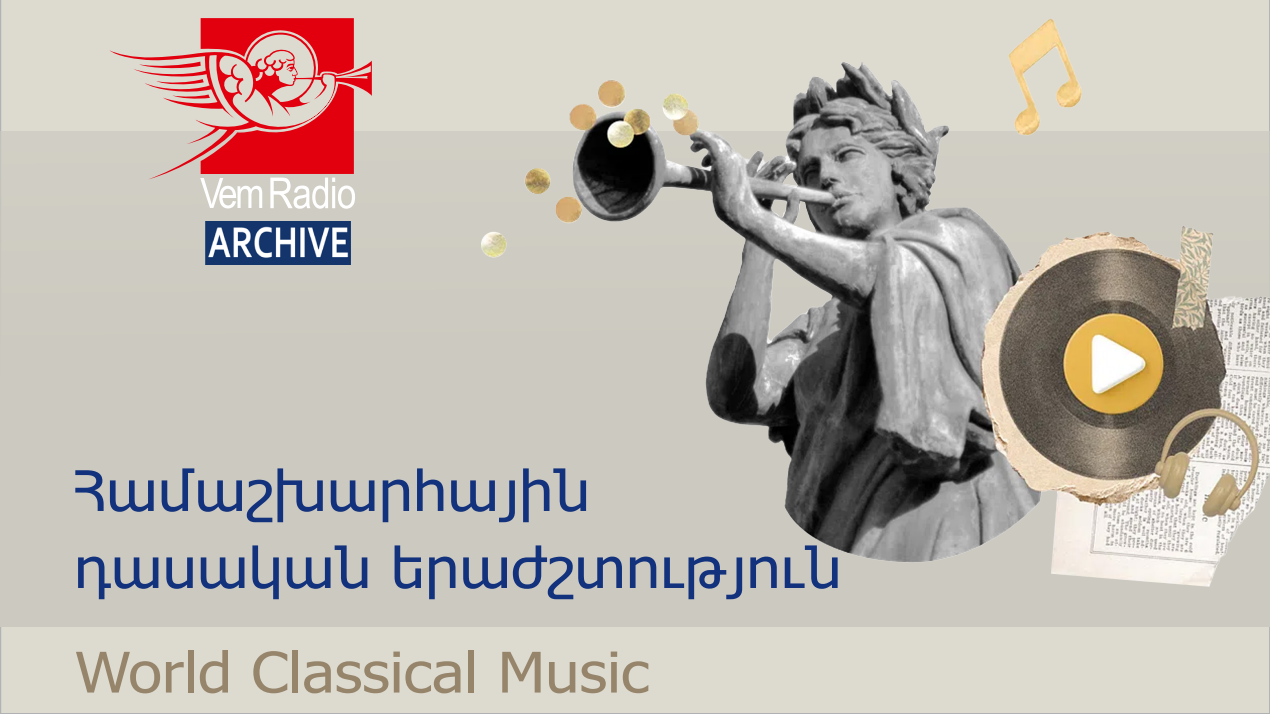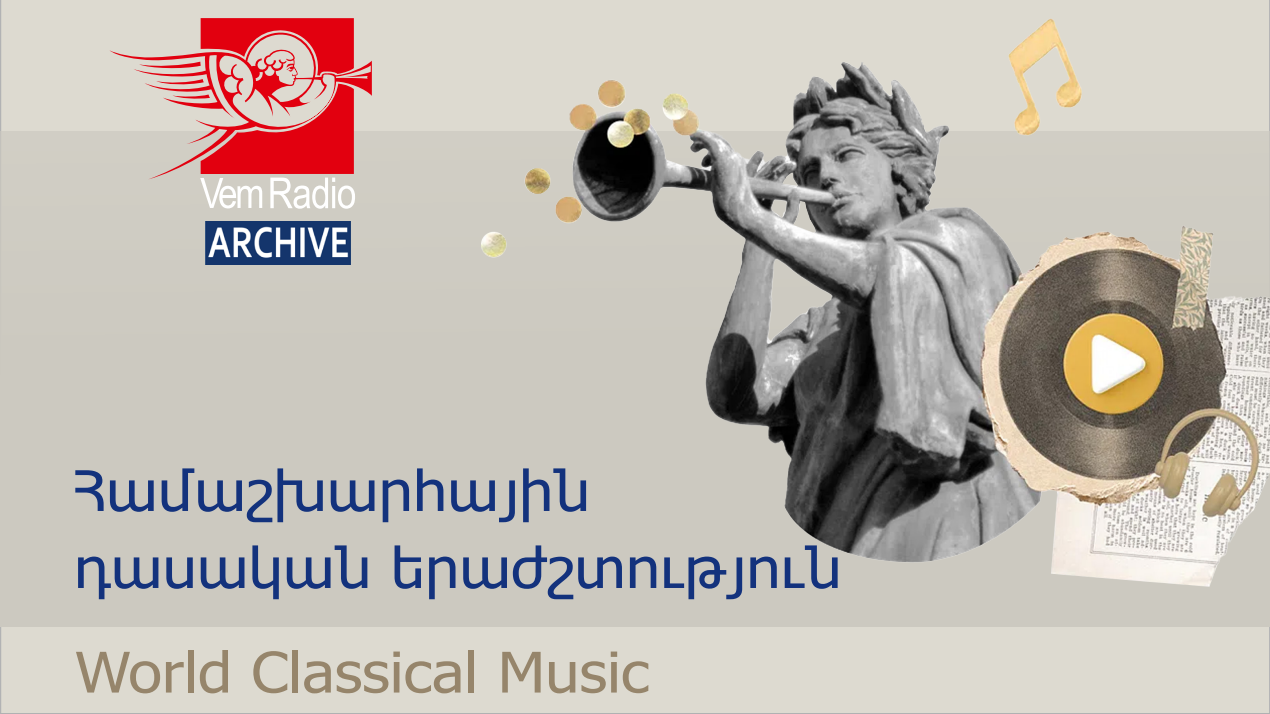

World Classical Music
The show presents the masterpieces of classics in performance of distinguished musicians, as well as provides comprehensive information about the lives and works of composers and performers, their role and influence on further development of classical music.

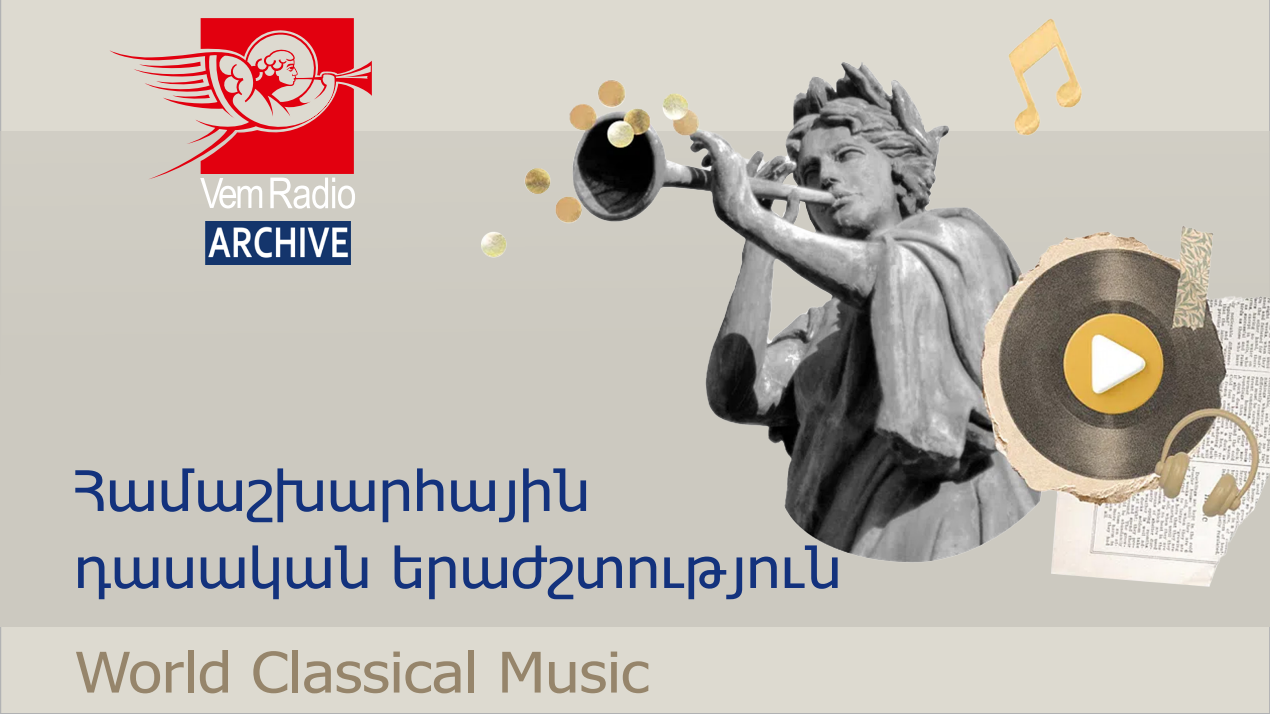
Ohan Durian: Legend or Reality? (Part I)
The first part of this episode is dedicated to the first period of the life and work of the great conduc-tor Ohan Duryan (in 1960s) — to the concerts held in Armenia and abroad and culminating in the Opera "Anush" presented by him at Moscow Bolshoi Theater, Beethoven's Symphony No. 9, which he performed with the Leipzig Gewandhaus Orchestra, operas "Aida," "Lohengrin," and others.

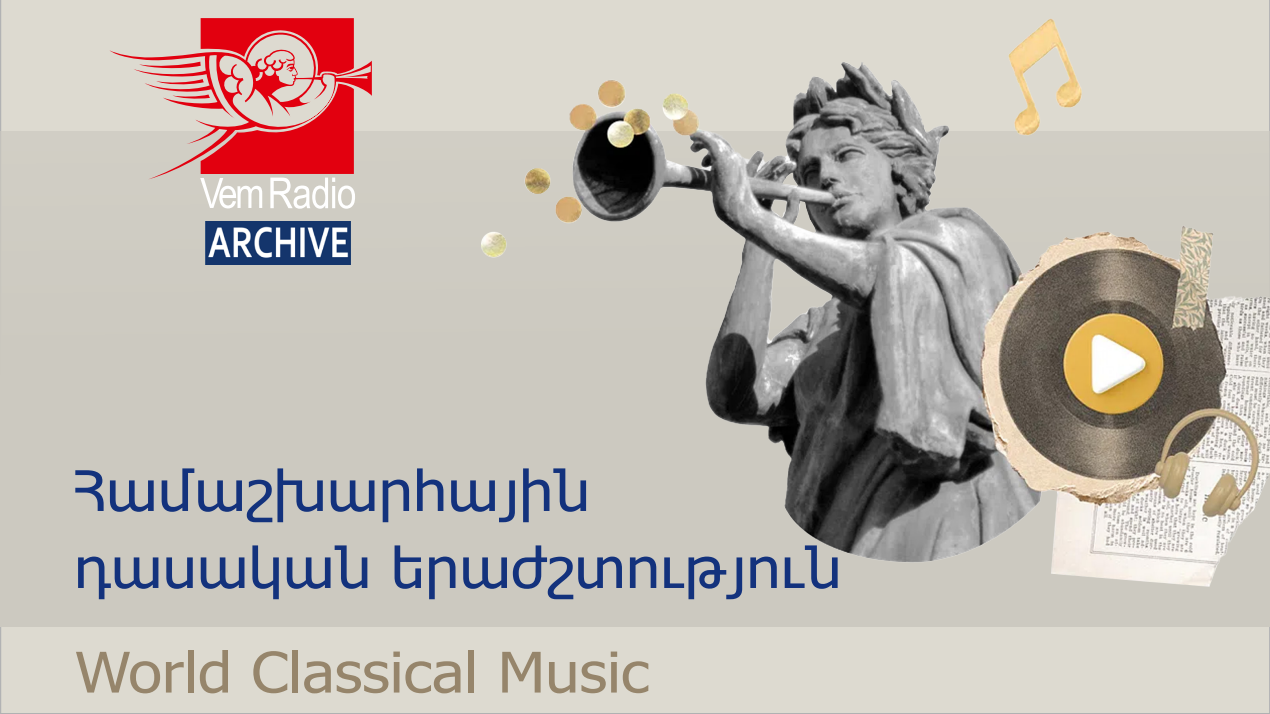
Richard Wagner: The Miserable Pages of the Glorious Life
This episode presents the difficult days of Richard Wagner's life, when desperate from poverty, he was looking for a way out, writing letters and asking for financial assistance from Countess Edith von Rahden in order to support his family and finish his works.

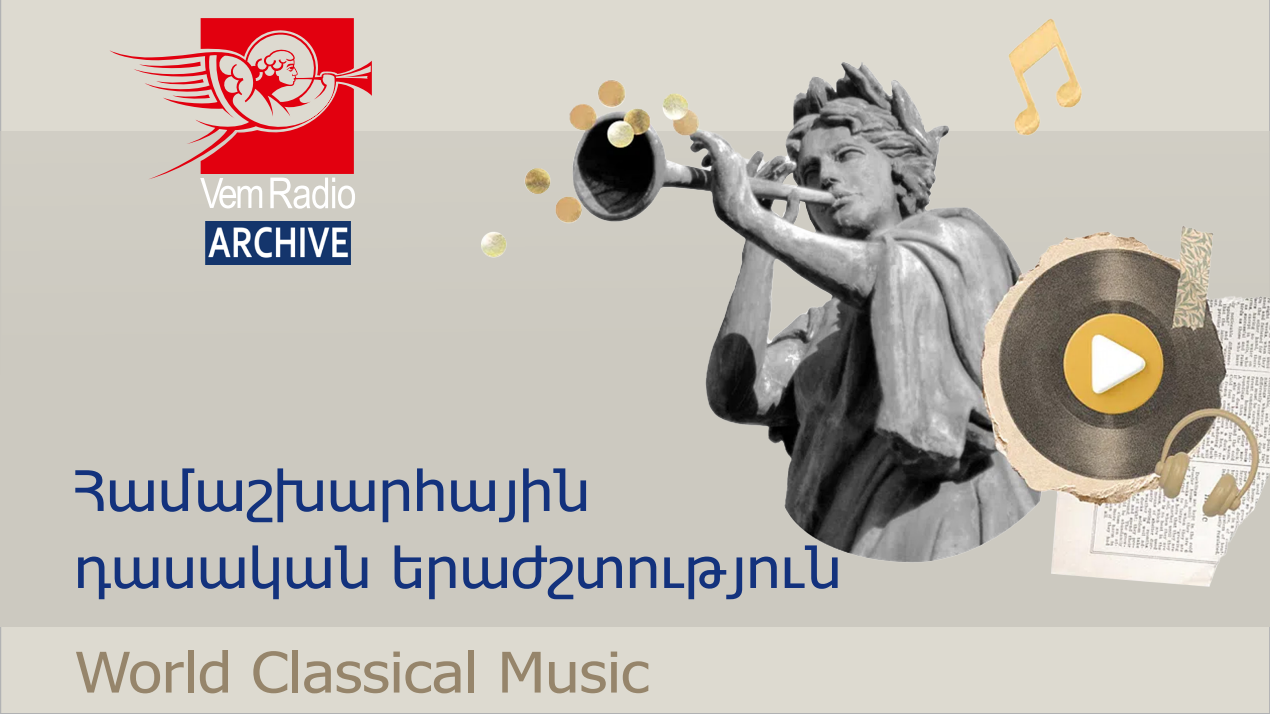
The Girl and the Death
This episode is dedicated to the untimely departed talented French violinist Ginette Neveu, who during the 30 years of her life managed to conquer the heights of art, to win the “crown” of the Wieniawski international competition, to capture the hearts of thousands of music lovers, and finally, to defeat death.

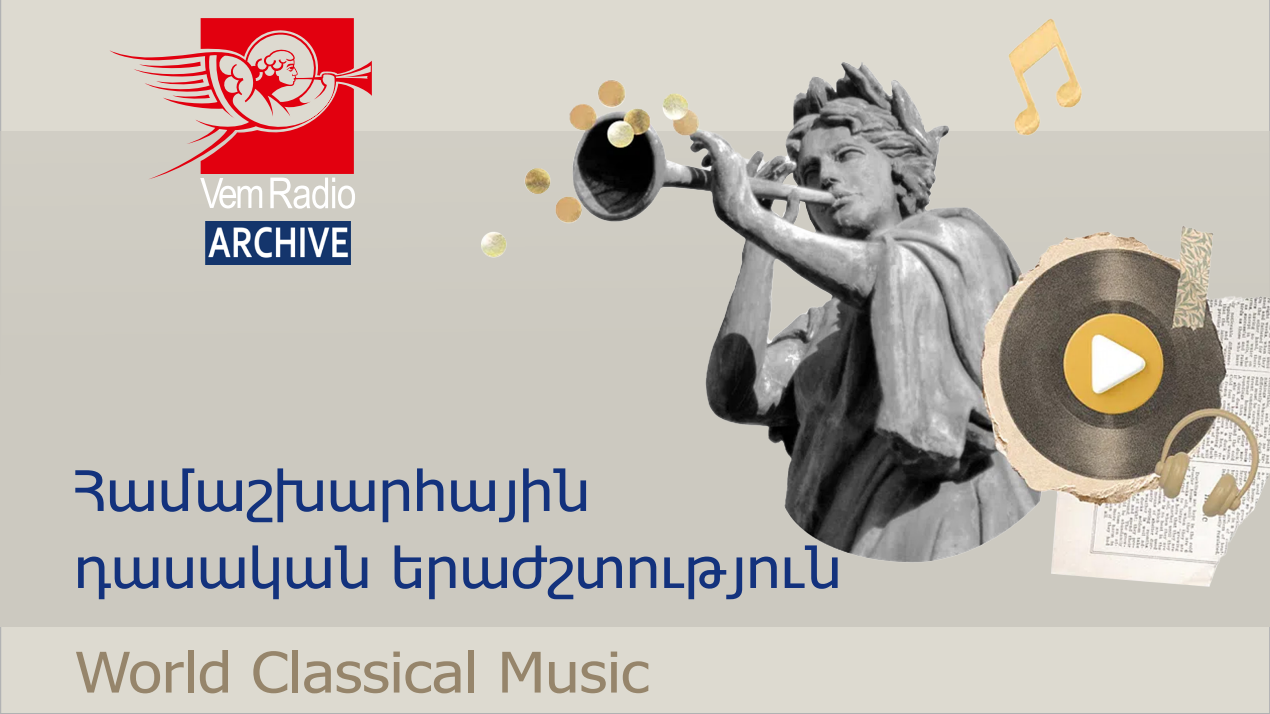
Wilhelm Furtwängler (Part I)
The first part of the episode presents the article “Thoughts on the Performance of Ancient Music” by German conductor Wilhelm Furtwängler, who expresses and substantiates his distrust toward the authentic, real and “documented” reproduction of the music of the past.
